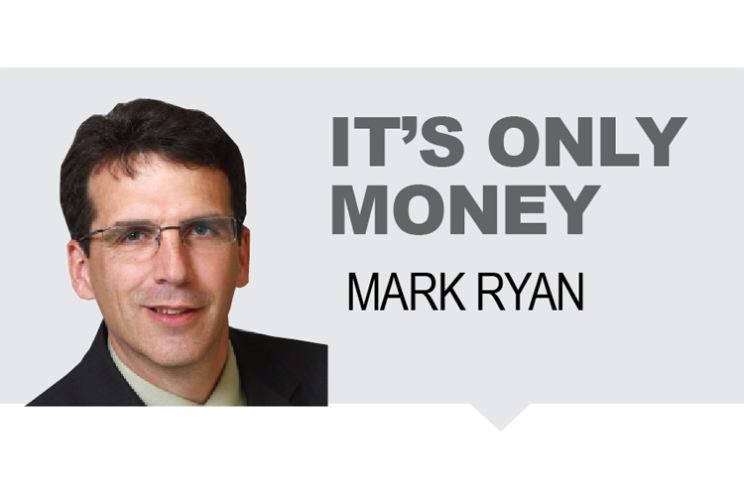At its peak, the communist movement held sway in every populous continent, as dozens of countries embraced the dream. But its underdog proletariat heroes quickly felt its betrayal, lorded over jealously by inexperienced, doctrinally rigid party men. The dogma's only enduring warmth was a perpetual blanket of working class corpses.
Not that the party officials were inherently evil. They were just so married to the creed that they stomped on the higher principles of fairness, and compassion in the piety of their fixation. This is not a minor flaw.
And then, after several decades, while the Wealth of Nations under Lenin's lemon lamented, some bright young mind in an inner sanctum of macroeconomics sparked a plan.
What if, as a temporary measure, we allow a little enterprise to prevail? Just to see what happens.
Warily at first, and then hungrily, prosperity went on to flourish like a kingfisher at a salmon hatchery. Soon Russia had unabashedly embraced capitalist methods. China became communist in name only.
According to the South China Morning Post, the top one per cent of Chinese overlords owned fully one-third of the country's total wealth in 2016, worse than the much-lamented disparity in the U.S.
Still, according to the World Bank, the number of Chinese residents living below the International Poverty Line, (a much lower standard than North American measures) fell from over 1.1 billion in 1990 to less than a million today. The World Bank also notes that, despite the embarrassing one per cent data noted above, China's "...growth has brought fast welfare gains... to all members of society and particularly to those at the bottom 40 per cent of the distribution."
In the financial world, "spread" often refers to the interest rate demanded by a lender over and above the U.S. T-bill rate. In addition to private agencies, the OECD ranks countries on a scale of one to seven to assist institutions and wealthy nations in evaluating the credit risk of lending to countries. Former communist nations have seen a sharp uptick in credit worthiness as they reacquaint themselves with free markets.
But some countries cling to Marxist rule like grandma to a bag of moldy prunes. Of the nations who are still diehard communists, (Cuba, Venezuela, North Korea) all are ranked a seven, which, roughly translated, means: "Not a chance."
In 1997, when the lease ran up on the U.K.'s claim over Hong Kong, the world watched as China wrestled with its dilemma. Should they enforce the Holy Order of Abject Poverty on the tiny island and make fools of themselves before the world (again) or find another solution? From this angst, two policies were born:
Policy 1: Special Administrative Regions (SAR). Hong Kong being the special-est SAR, wherein free enterprise was allowed to flourish. Roughly translated it meant: "Communist bureaucrats, keep your clumsy paws off."
Policy 2: One Country, Two Systems, meaning basically the same thing.
In a feat of circus magic, the last 22 years has seen China split the economic atom, using capitalism as its financial launching pad, while remaining welded to the iron fist of one-party control. And now, with the juice that combination gives them, here we are.
Over the past few weeks, Hong Kong's citizens took to the streets fighting changes to formerly exempt extradition arrangements with China. This has resulted in some of the worst violence that Hong Kong has seen since the 1997 handover to Chinese rule.
While the Hong Kong government has shelved the legislation "indefinitely," protests continue,and critics worry Chinese authorities would use the laws to target people who have angered the Chinese government.
The democratic process has come under progressively more strain in the last few years as China exerts its control. Hong Kong Chief Executive Carrie Lam is supported by a majority pro-Beijing Legislative Council. Beijing holds veto power over legislation.
Since taking office in 2017, Lam has been clear that she will support Beijing on "political issues," a frightening prospect. The Chinese government intervenes increasingly in areas such as academia, freedom of the media and civil society.
China is also accused of engineering cyber-interference, launching a massive hack on the demonstrators' organizational software. The protester's encrypted messaging app Telegram, was banned in Iran last month, just a month after Russia blocked the service. Bedfellows in mind-control.
All of this has caused a spike in political risk through the erosion of personal freedom and decline in the respect for the rule of law. Consequently, some agencies have placed Hong Kong on a negative outlook watch-list with the possibility of a credit downgrade in the coming weeks or months as events unfold.
Mark Ryan is an investment advisor with RBC Dominion Securities Inc. (Member - Canadian Investor Protection Fund), and these are his views, and not those of RBC Dominion Securities. This article is for information purposes only. Please consult with a professional advisor before taking any action based on information in this article. See his website at: http://dir.rbcinvestments.com/mark.ryan.



